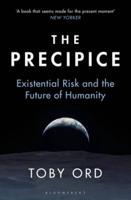Publisher's Synopsis
This revolutionary book fuses the enduring legacy of socialism-government for the common good-with the best of the environmental movement and the newest insights from sustainability studies. The result is a manifesto in the tradition of Bill McKibben's Eaarth-a roadmap forward in the face of the growing environmental catastrophe, which is the most complex crisis humanity has ever faced. Catherine Keller writes, "What an unexpected, discomforting and important work! If Marxism seemed to be abandoned in the West to a few academic leftists and nostalgic activists, the authors bring it roaring back into relevance." American conservatives like to say that Marxism was destroyed by its opponents and by the mistakes of Marxist governments. Organic Marxism provides the definitive answer to this charge. New economic evidence reveals that Marx's predictions are coming true in ways once thought impossible. Today the wealthiest class, the richest 1%, possesses more wealth and power than ever before, whereas the 99% are slipping economically, and the majority of humans live in increasing poverty. Above all else, the global environmental crisis changes everything. Clayton and Heinzekehr show how, over the last decades, rich individuals and multinational corporations have acted selfishly to increase their own wealth-with devastating ecological consequences. The data make it clear that the planet has reached the limits of its capacity. The authors trace the unimaginable environmental and social consequences that (scientists tell us) global warming will bring: mass extinctions, food and water shortages, violent weather, rising oceans. Why then do our governments continue to favor the wealthy? Why do they take no action ... or actually worsen the situation? Organic Marxism shows why the situation is not hopeless, however. The vast majority of humans favor sustainable systems and lifestyles. With this growing support, it's possible to begin laying the foundations for a new, ecological civilization on this planet. In these pages Clayton and Heinzekehr lay out the steps toward a fair and sustainable society, one run not in the interests of the rich but for the common good. This "fresh, energetic, and revolutionary manifesto" (Santiago Slabodsky) takes its leads from the core insights of Karl Marx, from process philosophers in China (Taoism) and in the West (Alfred North Whitehead), from ecology, and from the organic practices of sustainable communities. This "postmodern Marxism," the authors argue, is not deterministic and utopian. It allows for market forces while limiting corruption and excessive profit-taking by the wealthy. In the end, localized systems of production and trade, steeped in the cultural traditions of a given people, are far more sustainable and life-affirming than a globalized economy run by the richest banks and multinational corporations. The book is a call to action. We can no longer sit by passively and allow unlimited consumption by the wealthy when it means that there will be nothing left for our grandchildren. Without a planetary crisis, the rich would remain in power. As we approach the planet's limits, however, there is no other option but to shift to an organic, ecological civilization. Clayton and Heinzekehr show how scientists and economists, farmers and small business people, artists and religious leaders are coming together around the globe, building communities for the common good.









